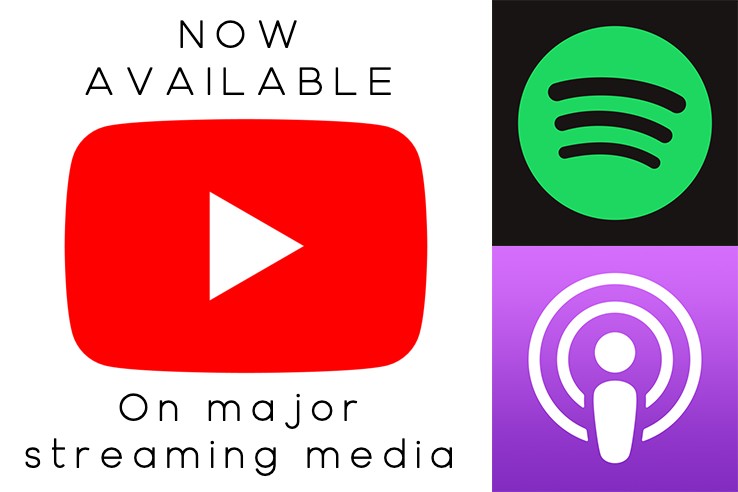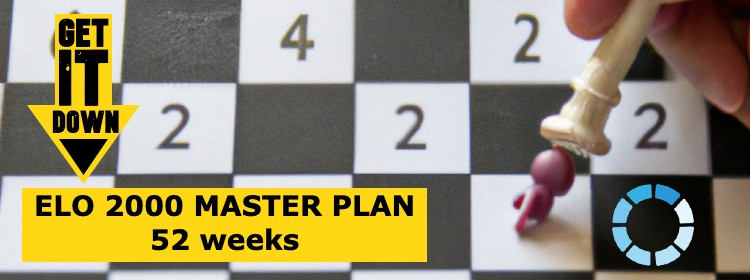The time it takes to reach a chess rating of 2000 ELO will depend on several factors, including the player's current level of skill, their natural aptitude for the game, and the amount of time and effort they are able to dedicate to studying and practicing. However, with consistent and focused effort, it is possible for a player to achieve a rating of 2000 ELO within a few years of starting to play seriously.
Players who are new to the game and have little to no experience may take longer to reach a 2000 ELO rating. Typically, it will take at least several months or even a year of consistent study and practice to reach an intermediate level, such as a rating of 1500 or 1600 ELO. At this level, players should have a good understanding of the rules of the game, as well as basic tactics and strategies.
To reach a rating of 2000 ELO, players will need to continue studying and practicing, with a focus on more advanced tactics and strategies, as well as endgame techniques and positional play. This may take another year or two of consistent effort and dedication, although the exact timeline will vary depending on the individual.
Overall, reaching a 2000 ELO rating in chess is an achievable goal, but it requires a significant amount of time, effort, and dedication. Players who are willing to put in the work and make a serious commitment to improving their game can make steady progress and reach a high level of skill within a few years.
Reaching an ELO rating of 2000 in chess requires consistent practice, dedication, and a comprehensive study plan. Here is a 52-week master plan to reach a rating of 2000 ELO:
Master plan 52 weeks (total 520 hours or 10 hours per week) to reach ELO 2000 rating:
Week 1-2: Foundations (20 hours)
• Review the basic principles of chess, including how to move the pieces, the value of the pieces, and the importance of controlling the center.
• Learn basic tactics, such as forks, pins, and skewers.
• Study the most common opening principles, such as controlling the center and developing pieces.
Week 3-4: Basic Endgames (20 hours)
• Study the basic endgame principles, such as king and pawn endgames and rook endgames.
• Practice playing endgame positions against the computer.
• Analyze master games to gain insight into how top players handle endgame positions.
Week 5-6: Intermediate Tactics (20 hours)
• Study intermediate tactics, such as double attacks, discovered attacks, and decoys.
• Practice solving tactical puzzles to improve calculation and pattern recognition.
• Use chess software to practice playing tactical positions against the computer.
Download the biggest OTB chess database with 9.5 millions chess games with monthly updates.
Week 7-8: Opening Repertoire (20 hours)
• Choose a few openings to specialize in and study them in-depth.
• Analyze master games in the chosen openings to gain insight into advanced strategies and techniques.
• Use chess software to practice playing the chosen openings against the computer.
Week 9-10: Positional Play (20 hours)
• Study the key strategic concepts of chess, such as controlling the center, pawn structure, and piece coordination.
• Practice playing positions that emphasize these concepts.
• Analyze master games to gain insight into how top players use strategy to gain an advantage.
Week 11-12: Calculation (20 hours)
• Study common calculation techniques, such as visualization and calculation trees.
• Practice solving complex puzzles and positions to improve calculation ability.
• Analyze master games to gain insight into how top players calculate variations and anticipate their opponent's moves.
Week 13-14: Pawn Structures (20 hours)
• Study the most common pawn structures and how to play against them.
• Practice playing positions with the most common pawn structures.
• Analyze master games to gain insight into how top players handle different pawn structures.
Week 15-16: Advanced Tactics (20 hours)
• Study advanced tactics, such as sacrifices, interference, and zugzwang.
• Practice solving complex tactical puzzles to improve calculation and pattern recognition.
• Use chess software to practice playing tactical positions against the computer.
Week 17-18: Advanced Endgames (20 hours)
• Study more advanced endgames, such as queen and pawn endgames and complex rook endgames.
• Practice playing endgame positions against the computer.
• Analyze master games to gain insight into how top players handle advanced endgame positions.
Week 19-20: Advanced Opening Repertoire (20 hours)
• Study more advanced variations in your chosen openings.
• Analyze master games in the chosen openings to gain insight into advanced strategies and techniques.
• Use chess software to practice playing the advanced openings against the computer.
Week 21-22: Combination Play (20 hours)
• Study combinations and sacrificial play, including the use of decoys, interference, and double attacks.
• Practice solving complex puzzles and positions to improve calculation and pattern recognition.
• Analyze master games to gain insight into how top players use combinations to gain an advantage.
Week 23-24: Advanced Strategy (20 hours)
• Study advanced strategic concepts, such as initiative, pawn breaks, and dynamic play.
• Practice playing positions that emphasize these concepts.
• Analyze master games to gain insight into how top players use advanced strategy to gain an advantage.
Week 25-26: Advanced Calculation (20 hours)
• Study advanced calculation techniques, such as advanced visualization and calculation trees.
• Practice solving complex tactical and positional puzzles to improve calculation ability.
• Analyze master games to gain insight into how top players calculate variations and anticipate their opponent's moves.
Week 27-28: Closed Games (20 hours)
• Study closed games, including the Caro-Kann, French Defense, and other similar openings.
• Analyze master games to gain insight into advanced strategies and techniques for closed positions.
• Use chess software to practice playing these openings and positions against the computer.
Week 29-30: Open Games (20 hours)
• Study open games, including the Ruy Lopez, Italian Game, and other similar openings.
• Analyze master games to gain insight into advanced strategies and techniques for open positions.
• Use chess software to practice playing these openings and positions against the computer.
Week 31-32: Semi-Open Games (20 hours)
• Study semi-open games, including the Sicilian Defense, French Defense, and other similar openings.
• Analyze master games to gain insight into advanced strategies and techniques for semi-open positions.
• Use chess software to practice playing these openings and positions against the computer.
Week 33-34: Attacking Play (20 hours)
• Study attacking play, including the use of sacrifices, piece coordination, and exploiting weaknesses in your opponent's position.
• Analyze master games to gain insight into how top players use attacking play to gain an advantage.
• Use chess software to practice playing attacking positions against the computer.
Week 35-36: Defensive Play (20 hours)
• Study defensive play, including the use of prophylaxis, passive defense, and counterplay.
• Analyze master games to gain insight into how top players defend against aggressive play.
• Use chess software to practice playing defensive positions against the computer.
Week 37-38: Master Games (20 hours)
• Study classic games from the great chess masters, including Capablanca, Alekhine, Fischer, and Kasparov.
• Analyze these games to gain insight into advanced strategies and techniques used by the masters.
• Use chess software to practice playing these games and positions against the computer.
Week 39-40: Tournament Play (20 hours)
• Practice playing in tournaments and gaining experience against a variety of opponents.
• Analyze your own games to identify areas for improvement.
• Review games from other players to gain insight into different playing styles and strategies.
Week 41-42: Speed Chess (20 hours)
• Practice playing blitz and rapid games to improve your calculation speed and accuracy.
• Analyze your own games to identify areas for improvement.
• Use chess software to practice playing speed chess against the computer.
Week 43-44: Online Chess (20 hours)
• Practice playing online chess to improve your ability to play against a variety of opponents.
• Analyze your own games to identify areas for improvement.
• Use chess software to practice playing online chess against the computer.
Week 45-46: Simultaneous Exhibitions (20 hours)
• Participate in simultaneous exhibitions against strong players to gain experience and improve your playing ability.
• Analyze your own games to identify areas for improvement.
• Use chess software to practice playing simultaneous exhibitions against the computer.
Week 47-48: Chess Training Camp (20 hours)
• Attend a chess training camp or workshop to improve your skills and receive personalized coaching.
• Practice playing against other participants to gain experience and improve your playing ability.
Week 49-50: Review and Consolidation (20 hours)
• Review all the key concepts covered in the previous weeks.
• Play practice games against other players to put your new skills to the test.
• Analyze your own games to identify areas for improvement and consolidate your knowledge.
Week 51-52: Tournament Preparation (20 hours)
• Focus on preparing for upcoming tournaments by studying the opening variations, endgames, and positions that are most likely to arise.
• Analyze your own games and those of your opponents to gain insight into their playing styles and strategies.
• Use chess software to practice playing against different types of opponents and positions.
This 52-week master plan is designed to provide a comprehensive study plan for reaching a rating of 2000 ELO in chess. While this plan is intensive, it is important to note that progress will depend on individual factors such as starting skill level, natural aptitude, and the amount of time and effort invested in training.
To make the most of this plan, it is recommended to work with a chess coach or mentor who can provide personalized feedback, help identify areas for improvement, and adjust the study plan as necessary. Additionally, it is important to supplement the plan with consistent practice and play against other opponents, as this will help reinforce and apply the knowledge gained through study.
Please comment on social media if you like the plan or even if you say this is unreal.
Your Opening Master team
OpeningMaster is now available on all three major podcast platforms
We are glad we can provide this service totally for free on all major podcast platform Youtube, Spotify and Apple Podcasts so you can now enjoy the chess meditations whether you are fan of either of the three.

Visit and subscribe to our YouTube channel  to learn chess openings and much more. Listen to our Spotify Podcasts
to learn chess openings and much more. Listen to our Spotify Podcasts ![]() on weekly basis.
on weekly basis.




